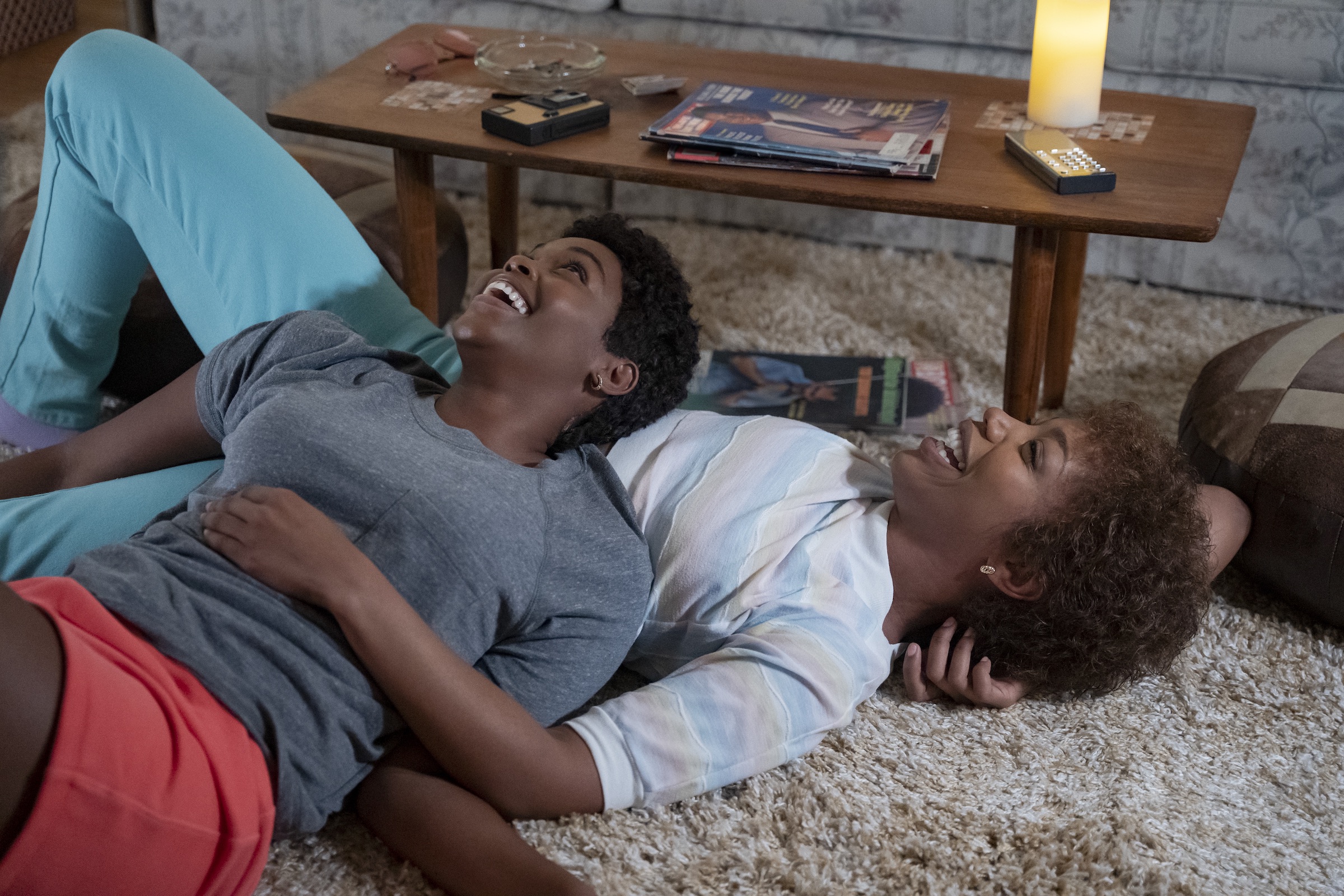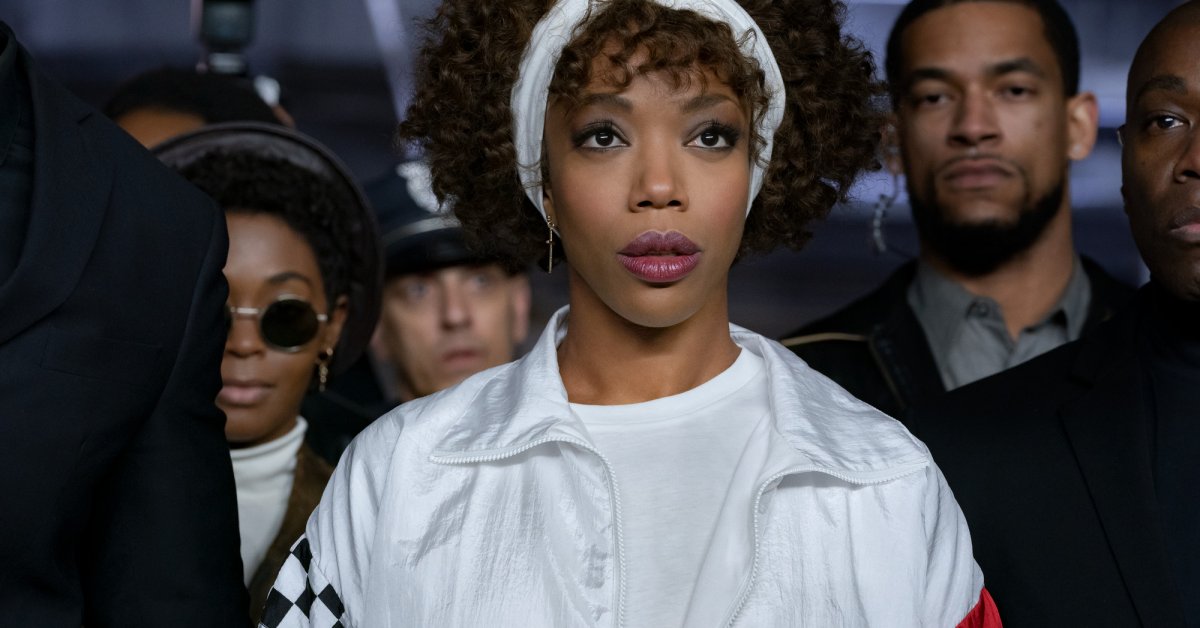As adored as she was in her lifetime, the real meaning of Whitney Houston didn’t click until she was gone. When she was alive, we knew about her extraordinary vocal range, and how electrifying a performer she was. We also knew she had substance-abuse problems, was struggling through a stormy marriage (to fellow pop star Bobby Brown), and, as the tabloids told us in trumpeting type, was gay or bisexual. For some reason, it was easy to be blasé about all of those things—weren’t the personal lives of all pop superstars a mess? Wasn’t that just the cost of being them? Weren’t they, on some level, just asking for trouble? Houston seemed to be playing off a rulebook that had been written long before she hit the scene. Her death in 2012, after a drug-related drowning accident, was mournful but not particularly surprising.
Yet the more time passes, the sadder it seems that most of us didn’t pay closer attention to the person Houston really was, or was trying to be. The fractured framework of Houston’s life has been addressed in several documentaries (among them Kevin Macdonald’s Whitney and Nick Broomfield and Rudi Dolezal’s Whitney: Can I Be Me) and several biopics or thinly veiled fictionalizations (including, most recently, Andrew Dosumnu’s earnest but inert Beauty). But of the non-docs, at least, Kasi Lemmons’ I Wanna Dance with Somebody—starring English actress Naomi Ackie—may come closest to capturing Houston’s exuberant contradictions, and the joy she both took and gave in performing. The movie isn’t a melodramatic tell-all, or a total downer. But it manages, even while being unapologetically entertaining, to feel like an honest reckoning with all the things we didn’t want to know about Houston at her fame’s height. It’s a film that takes our failings into consideration, rather than simply fixating on hers, a summation of all the things she tried to tell us and couldn’t.
Naomi Ackie as Whitney Houston
Courtesy of Tristar Pictures
The story begins in 1983 New Jersey, with Ackie as the teenage Whitney, the star of her church gospel choir. Her vocals are disciplined—her discerning mama, Cissy (Tamara Tunie), a gospel singer extraordinaire herself, stands listening nearby, a stern criticism already taking shape in her eyes. Even so, Whitney’s voice is fresh and full of light, like a heartfelt promise. A little later, we see her listening to a song through headphones in a park. A girl comes up to say hello—it’s an innocent pickup, the way people used to get things going in the days before dating apps. The girl, Robyn Crawford (Nafessa Williams), laughs when Whitney introduces herself decorously as Whitney Elizabeth Houston. But before long, she has fallen in love with both the voice and the woman. The two move in together, even as Cissy scowls disapprovingly.
Cissy also feels competitive with her daughter, though there’s generosity, too: at a local nightclub, where Whitney usually sings backup for her mother the almost-star, Cissy almost literally pushes her daughter into the spotlight when she sees major record exec Clive Davis (played, with affectionate perfection, by Stanley Tucci) in the audience. Suddenly, there’s a record contract: Whitney’s father, the immediately untrustworthy John (Clarke Peters), gets in on the action, setting the stage for future looting of his daughter’s earnings. Young Whitney makes her TV debut on the Merv Griffin show—her singing is less a full-on display of what she can do and more of an embrace, as if she yearned to take the whole world in at once. And before you know it, she’s a superstar, commanding a stadium full of people in a Spandex catsuit and fantastic gold-embroidered toreador jacket. We’ve already seen that she’s at least two people in one: a forthright young woman who knows what she wants, and a woman who gives too much away, to the people around her and maybe even to her audience.
Read More: The Most Anticipated Albums of 2023
All of this is standard biopic stuff. But along with screenwriter Anthony McCarten, Lemmons—who has made some terrific movies in her long career (Eve’s Bayou, Talk to Me), if perhaps not as many movies as we might wish—weaves events together deftly, highlighting the significant ones and eliding stuff that doesn’t matter so much. She turns Whitney’s pursuit of Brown (played by Ashton Sanders) into a comedy bit. After being wowed by him at the Soul Train Awards, she realizes he’s sitting right in front of her and begins whacking his head with her minaudiere. He finally turns around, barely prepared for the dazzler who’s standing there, laughing at him. Robyn, at Whitney’s side, witnesses all of it. She and her former romantic partner have brokered a kind of platonic devotion, but they’re fooling neither themselves nor anyone else. Whitney’s life is like a pile of dynamite just waiting for a match.
Ackie’s performance is wonderful: as Whitney, there’s something girlishly vulnerable about her, but you can see this is also a woman who has had to put up rigid guardrails. She bristles with fury when she fields the criticism that part of her audience has deemed her “not Black enough.” In one of the movie’s most intense scenes, she rushes to the side of her hospitalized father where, even as he’s gasping for breath, he hisses through his teeth that she had better pay back the money he believes she owes him. (It’s $100 million, even though he’s already bled her dry.) The movie’s finest scenes—there are quite a few of them—are the ones set in Davis’s office, where he pops in one demo cassette after another. The two listen together, but he says nothing before she does. Instead, he scans her face, wanting to know only what she thinks. She hears one song—it happens to be “How Will I Know?”—and brightens immediately; he gently counters that he’s not sure it has a hook. “I’ll give it a hook!” she says, and history proves that she did.

Robin Crawford (Nafessa Williams) and Whitney Houston (Naomi Ackie) in the happier, early days of their relationship
Courtesy of Tristar Pictures
Is that an idealized version of the relationship between a superstar producer and his superstar? Maybe. (Davis is one of the movie’s producers.) But music biopics need to be equal parts stardust and sawdust to work. Similarly, Lemmons addresses Houston’s drug use discreetly—the movie Whitney keeps her crack apparatus in a nice little case—and her lowest moments pass fleetingly, often indicated by excessively messy hair.
But then, we already know the worst parts of the story—how low do we really need to go? This also saves I Wanna Dance with Somebody from the typical third-act problem of most biopics: the endless depiction of the long, slow decline. Lemmons is more interested in the root of Houston’s tragedy than its expression, anyway. At one point, Whitney laments that it’s her job to “be everything to everyone.” The list of performers who have been broken by stardom is long, but Lemmons suggests that Whitney had more than her share of burdens. Her sexuality and how she chose to define it, or not, should have been the least of her problems, yet it was treated as everyone’s business. In the early 1990s, I once went to hear Gospel great Shirley Caesar. It was a remarkable show, inclusive in the purest sense, and rapturous enough to make even a lapsed Catholic want to come to Jesus. But somewhere near the end, Caesar injected the line “God made Adam and Eve, not Adam and Steve” into her patter and the spell was broken. The radiant energy of the music, the vibe, had been an invocation to levitate—but not for everybody.
In I Wanna Dance with Somebody, during an episode of romantic turmoil between Whitney and Robyn—Whitney has just slept with Jermaine Jackson, and Robyn is livid—Whitney confesses that she wants a “real” family, with a husband and kids. The mores she grew up with have stuck hard. “We can go to hell for this kind of shit,” she tells Robyn, waving her arms at the apartment the two share, a place where a fluffy cat sleeps on their bed, where they have coffee together in the morning. The tragedy of Whitney Houston has so many tiers: it’s a classic story about show-biz exhaustion, about being bilked by people who should be working in your best interest, about turning to drugs when you need to unwind after a show or rev up before one. But most of all, it’s a tragedy about having too many people, and too many forces, clawing away at your soul. Whitney deserved better. Long may she levitate.
More Must-Reads From TIME


